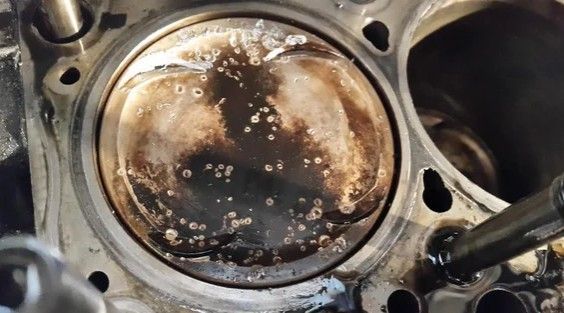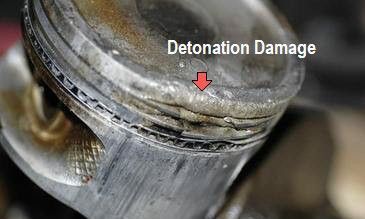KNOCK KNOCK DETONATION TIME
NaTasha Brand • July 1, 2025
Pre-Detonation: When Your Engine Throws a Tantrum (And How to Calm It Down)

Let’s talk about pre-detonation—the automotive equivalent of your engine throwing a fit because it didn’t get its way. Imagine a toddler screaming because you gave them the wrong snack. Now imagine that toddler is inside your engine, banging on the pistons like they’re drums. That’s pre-detonation.
What’s Happening in There?
If you’ve ever heard a sharp pinging or knocking sound coming from your engine under acceleration, you might be experiencing pre-detonation—also known as engine knock. This issue can cause serious damage if left unchecked, especially in San Angelo’s hot and sometimes unpredictable climate.
At Ric Henry’s Auto Service, we know how frustrating (and costly) engine problems can be. That’s why we’re breaking down everything you need to know about pre-detonation—what causes it, how to spot it, and most importantly, how to prevent it.
What Is Pre-Detonation (Engine Knock)?
Pre-detonation occurs when the air-fuel mixture in your engine’s cylinders ignites too early—before the spark plug fires. This creates multiple flame fronts that collide, causing that telltale knocking or pinging noise. Over time, this can lead to piston damage, blown head gaskets, or even complete engine failure.
Common Causes of Engine Knock
Several factors can contribute to pre-detonation, especially in San Angelo’s high heat and heavy traffic conditions:
✔ Low-Octane Fuel – Using lower-octane gas than recommended can cause premature ignition.
✔ Carbon Deposits – Buildup on pistons or valves increases compression, raising combustion temps.
✔ Faulty Spark Plugs – Worn or incorrect plugs can disrupt ignition timing.
✔ Overheating Engine – San Angelo summers are brutal; an overheating engine is more prone to knock.
✔ Lean Air-Fuel Mixture – Too much air and not enough fuel can cause hotter, erratic combustion.
✔ Faulty Knock Sensor – If this sensor fails, your engine won’t adjust timing to prevent knock.
Symptoms of Pre-Detonation
How do you know if your engine is knocking? Watch for these signs:
🔧 Metallic pinging noise under acceleration or when towing
🔧 Loss of power or sluggish performance
🔧 Check Engine Light (often triggered by the knock sensor)
🔧 Overheating due to increased cylinder pressure
How to Prevent Engine Knock
The good news? Pre-detonation is preventable with proper maintenance and smart driving habits:
✅ Use the Right Fuel – Always follow your manufacturer’s recommended octane rating.
✅ Keep Your Engine Cool – Check coolant levels, especially before a Texas summer.
✅ Clean Your Combustion Chamber – Fuel additives or professional cleaning can remove carbon buildup.
✅ Replace Spark Plugs & Wires – Ensure proper ignition timing with fresh components.
✅ Fix Air/Fuel Mixture Issues – A clogged fuel injector or bad oxygen sensor can cause a lean condition.
Need Help with Engine Knock? Ric Henry’s Auto Service Has You Covered!
At Ric Henry’s Auto Service in San Angelo, our expert technicians use dealer-grade tools and equipment to diagnose and repair engine knock—and any other issues your vehicle might have. From spark plug replacements to fuel system cleaning, we handle it all with precision.
Plus, all our services come with a 3-year/36,000-mile warranty for your peace of mind.
Don’t let engine knock ruin your ride—schedule an inspection today!
And remember: If your engine’s knocking, it’s not inviting you in for tea—it’s begging for a tune-up! 🚗💨






Share On: